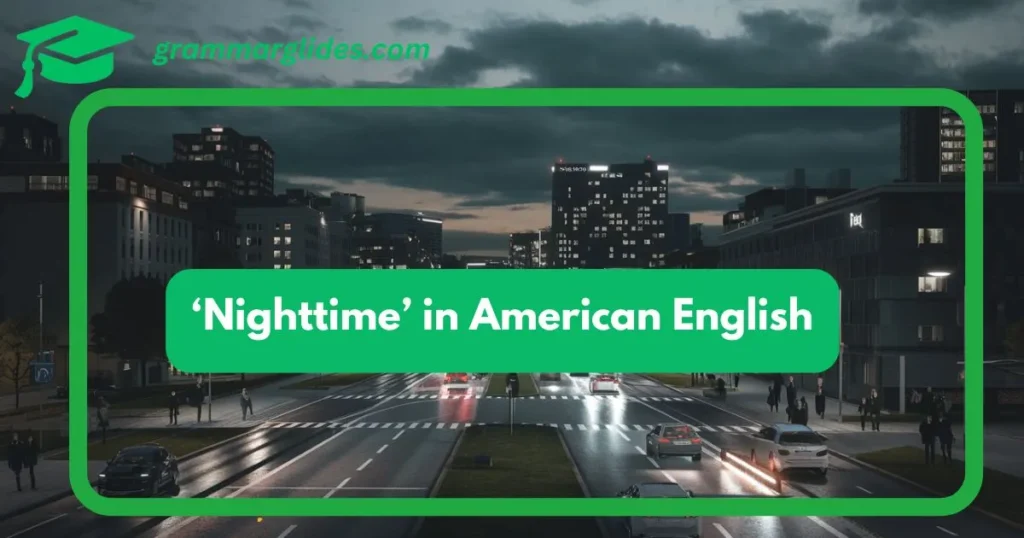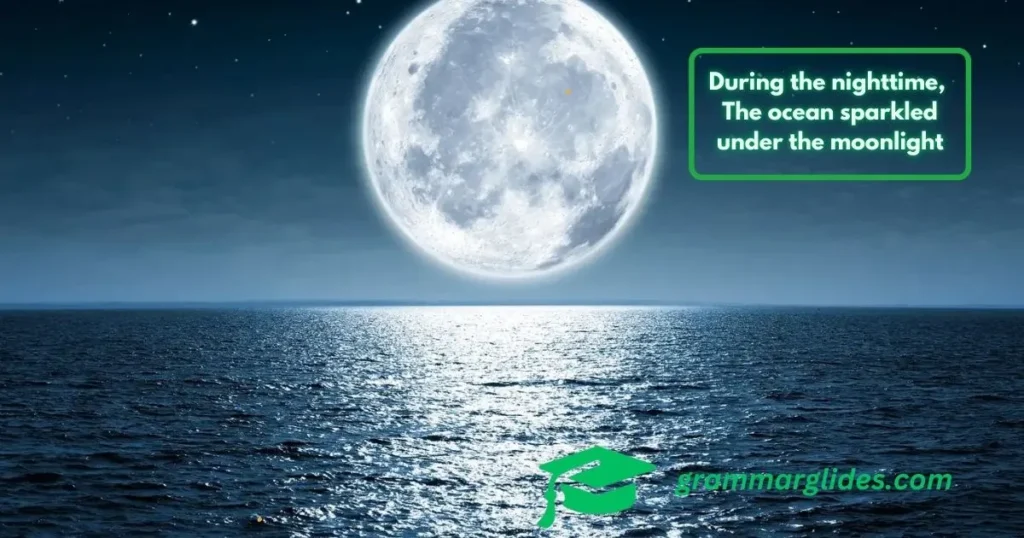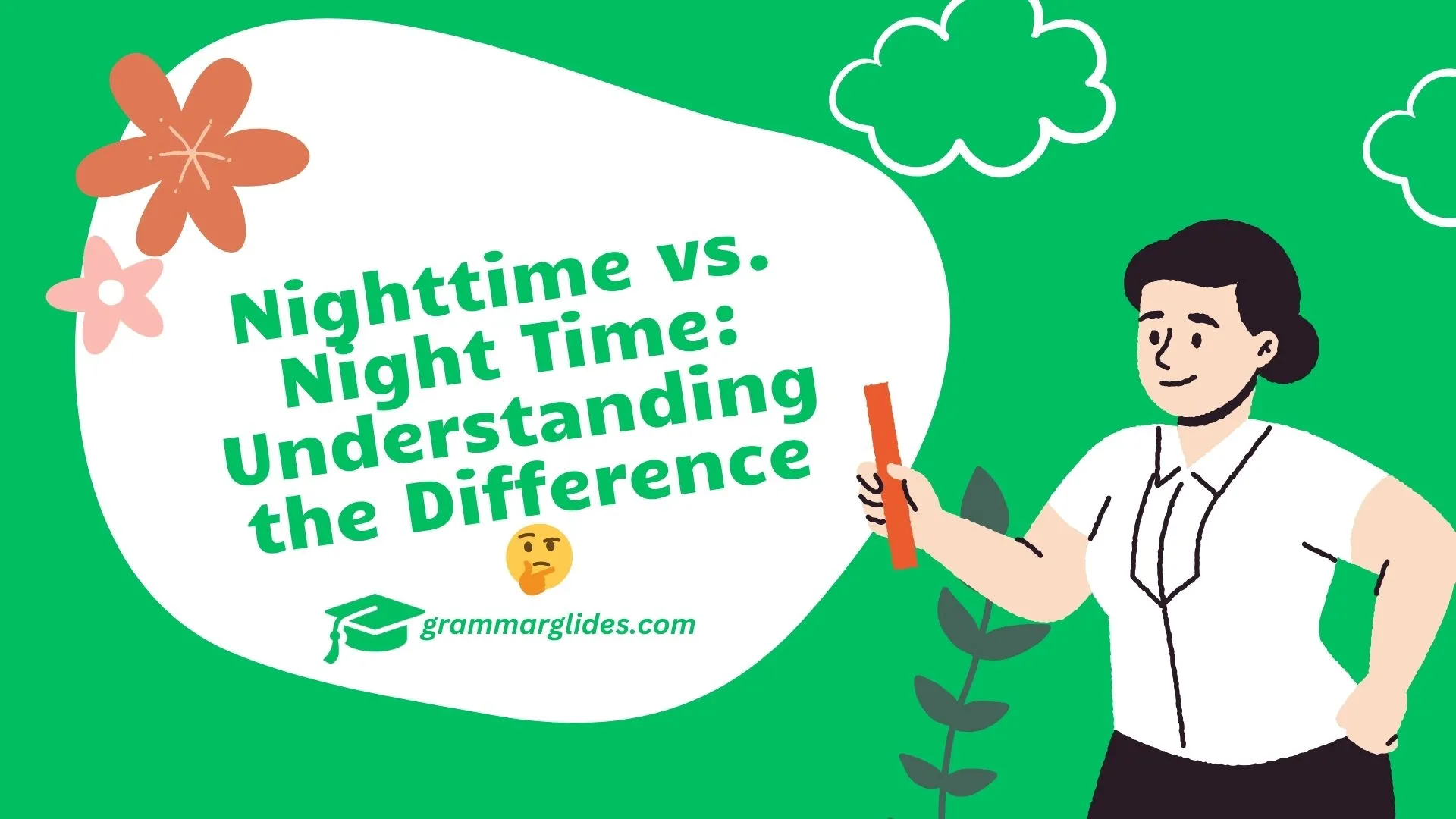“Dive into the world of English usage to uncover the true difference between ‘nighttime’ and ‘night time’—simplified and clear for everyone.”
The English language is full of fascinating quirks, and one that often leaves people scratching their heads is When to use ‘nighttime’ or ‘night time.’ While both versions may look correct, their usage differs based on grammar rules, context, and regional preferences. Are you curious to know which one fits better in your writing? Let’s explore.
When it comes to refining your language skills, clarity is key. Knowing when to choose ‘nighttime’ over ‘night time’ can elevate your writing, making it sound polished and professional. This guide will give you all the tools to master this subtle yet important distinction.
English evolves with time, and terms like ‘nighttime’ reflect how words can shift from two-word phrases to compound words. But why does this happen? And how does it affect usage today? Let’s dive into the details of this interesting transition.
Overview
Choosing between ‘nighttime’ and ‘night time’ depends on factors such as grammatical roles, stylistic preferences, and language trends. In modern English, ‘nighttime’ is the accepted compound word in most contexts, particularly in American English. Meanwhile, ‘night time’ is more of an older or poetic form, less common in contemporary usage. Understanding these nuances can sharpen your command over English while keeping your writing consistent and up-to-date.
The Transition from Two Words to a Single Compound
Language evolves as usage simplifies over time. ‘Nighttime’ originated as ‘night time,’ where “night” described the time of darkness. Over decades, the two words merged into a single compound, following the trend of efficiency in language.
Historical Perspective
Many terms, like ‘everyday’ and ‘anywhere,’ also transitioned from separate words to compound forms. This process reflects the tendency to streamline communication. Similarly, ‘nighttime’ emerged as the dominant form.
Examples of Similar Transitions from Two Words to a Single Compound
- Daytime – Transitioned from “day time” to a single compound to describe the period during the day.
- Lifetime – Evolved from “life time” to a single word, denoting the duration of a person’s life.
- Bedtime – Simplified from “bed time” to refer to the time one goes to bed.
- Sunrise – Merged from “sun rise” to a compound word describing the daily event.
- Sunset – Transitioned from “sun set” to a single term for the time the sun sets.
- Hometown – Condensed from “home town,” meaning the town where one was raised.
- Airport – Formed from “air port” to describe a hub for aircraft operations.
- Notebook – Transitioned from “note book” into a compound for a portable book for writing notes.
- Workplace – Shifted from “work place” to a single word for a location of employment.
- Playground – Combined from “play ground” to signify an area for recreation.
Key Differences in Grammatical Roles
| Grammatical Role | Nighttime | Night Time |
| As a Noun | “Nighttime is the best for stargazing.” | “During the night time, the air is crisp.” |
| As an Adjective | “Nighttime adventures are thrilling.” | Not used as an adjective phrase. |
| With Prepositions | “She loves walking at nighttime.” | “She loves walking during the night time.” |
Consulting the Authoritative Dictionaries
To clarify usage, let’s compare authoritative dictionary entries.
Dictionary Comparisons
- Merriam-Webster: Lists ‘nighttime’ as a compound noun and adjective.
- Oxford English Dictionary: Prefers ‘nighttime’ in modern contexts, with ‘night time’ noted as archaic.
Language Evolution and Current Usage Trends
Evolution Factors
- Convenience: Shorter words are easier to read and write.
- Standardization: Style guides and dictionaries encourage consistency.
- Media Influence: Common usage in movies, books, and news shapes preferences.
Statistical Data
According to Google Ngram, ‘nighttime’ is significantly more common than ‘night time,’ particularly in American English.
‘Nighttime’ in American English: The Accepted Standard

Style Guide Recommendations
Prominent style guides like AP Stylebook and Chicago Manual of Style recommend using ‘nighttime’ over ‘night time’ for clarity and modernity.
Usage in American Media
‘Nighttime’ appears frequently in news articles, TV shows, and even legal documents. For instance:
- “Nighttime in the city feels magical.”
- “Nighttime viewing of the stars is breathtaking.”
The Grammatical Roles of ‘Nighttime’
As a Noun
When used as a noun, ‘nighttime’ refers to the period after sunset and before sunrise.
- Example: “She enjoys the calm of nighttime to meditate.”
As an Adjective
As an adjective, ‘nighttime’ describes something occurring during the night.
- Example: “Nighttime activities include stargazing and campfires.”
‘Nighttime’ as a Noun Explained
Detailed Explanation
As a noun, ‘nighttime’ is straightforward. It replaces the longer phrase ‘the time of night’ to streamline sentences.
Descriptive Use: ‘Nighttime’ as an Adjectival Noun
When paired with other nouns, ‘nighttime’ adds depth by describing activities, scenes, or events associated with the night.
- Example: “The nighttime sky was filled with shooting stars.”
Common Usage and Example Sentences Demonstrating ‘Nighttime’
Common Contexts
The term ‘nighttime’ is frequently used to describe situations or activities that occur during the night. Here are some common contexts:
- Daily Routines: Activities that happen after sunset, such as relaxation or preparation for bed.
- Nature Descriptions: Observing the beauty and ambiance of the night.
- Leisure Activities: Enjoying events or hobbies like stargazing, bonfires, or night drives.
On Friday or In Friday? Correct Prepositions Explained
Example Sentences
- Daily Routines:
- “Nighttime is the perfect time for journaling about your day.”
- “She always enjoys her nighttime skincare routine.”
- “The house feels calm during the nighttime hours.”
- Nature Descriptions:
- “The nighttime sky was filled with twinkling stars.”
- “Nighttime in the forest is alive with the sound of crickets.”
- “During the nighttime, the ocean sparkled under the moonlight.”

- Leisure Activities:
- “Nighttime drives along the highway feel relaxing.”
- “We gathered around the fire for a nighttime storytelling session.”
- “The concert had an incredible nighttime ambiance.”
| Aspect | Nighttime | Night Time |
| Definition | Refers to the period between sunset and sunrise. | A descriptive phrase denoting the time of night. |
| Part of Speech | Compound noun and adjective. | Phrase (noun and adjective in separate roles). |
| Usage Frequency | Highly common in modern English, especially in the U.S. | Rarely used; more common in older or poetic texts. |
| Style Preference | Recommended by style guides like AP Stylebook and Chicago Manual of Style. | Considered outdated by modern dictionaries. |
| Regional Preference | American and British English use ‘nighttime’ in modern contexts. | More common in older British English literature. |
| Examples in Sentences | – “Nighttime in the countryside is peaceful.”– “She enjoys nighttime walks.” | – “He spent some quiet hours during the night time.”– “Night time is serene.” |
| Dictionaries | Recognized and listed as a standard term in all major dictionaries. | Acknowledged as an archaic form or alternative. |
| Formality | Standard for both formal and informal use. | Typically found in poetic or literary contexts. |
Statistical Data: Google Ngram Viewer
Frequency Trends:
- ‘Nighttime’ has seen a steady rise in usage since the late 19th century, peaking in the 21st century.
- ‘Night time’ was more common until the early 20th century, after which its usage declined significantly.
Tips for Using ‘Nighttime’ Over ‘Night Time’
| Tip | Explanation |
| Consistency is Key | Stick with ‘nighttime’ in professional and casual contexts for clarity and alignment with modern English standards. |
| Follow Style Guides | Guides like AP Style recommend using ‘nighttime’ as it is concise and widely accepted. |
| Know Your Audience | Use ‘nighttime’ for general audiences. Choose ‘night time’ only if you’re writing in a poetic, old-fashioned, or specific literary style. |
| Leverage Modern Trends | Reflect contemporary writing practices by adopting ‘nighttime’ for its simplicity and streamlined appearance. |
Key Insight
1. Which is correct: “nighttime” or “night time”?
‘Nighttime’ is the correct and standard choice in modern English, particularly in American usage.
2. Is “nighttime” a compound word?
Yes, ‘nighttime’ is a compound word formed by merging ‘night’ and ‘time.’
3. Why is “nighttime” more common than “night time”?
‘Nighttime’ is preferred because it is more concise and reflects modern usage trends.
4. Can “nighttime” be used as an adjective?
Yes, ‘nighttime’ often functions as an adjective to describe nocturnal events or activities.
5. Is “nighttime” standard in American English?
Yes, ‘nighttime’ is the accepted standard in American English, endorsed by dictionaries and style guides.
Wrap Up
Understanding the difference between ‘nighttime’ and ‘night time’ not only improves your grammar but also helps you stay aligned with modern English standards.
While ‘nighttime’ dominates in American English for its clarity and convenience, recognizing the historical context of ‘night time’ enriches your appreciation for language evolution. When you’re writing professionally or creatively, choosing the right term ensures your message is accurate and impactful.

Hi! I’m Jane Austen, the author of Grammar Glides. I make English learning simple and fun, helping you master grammar with ease!












